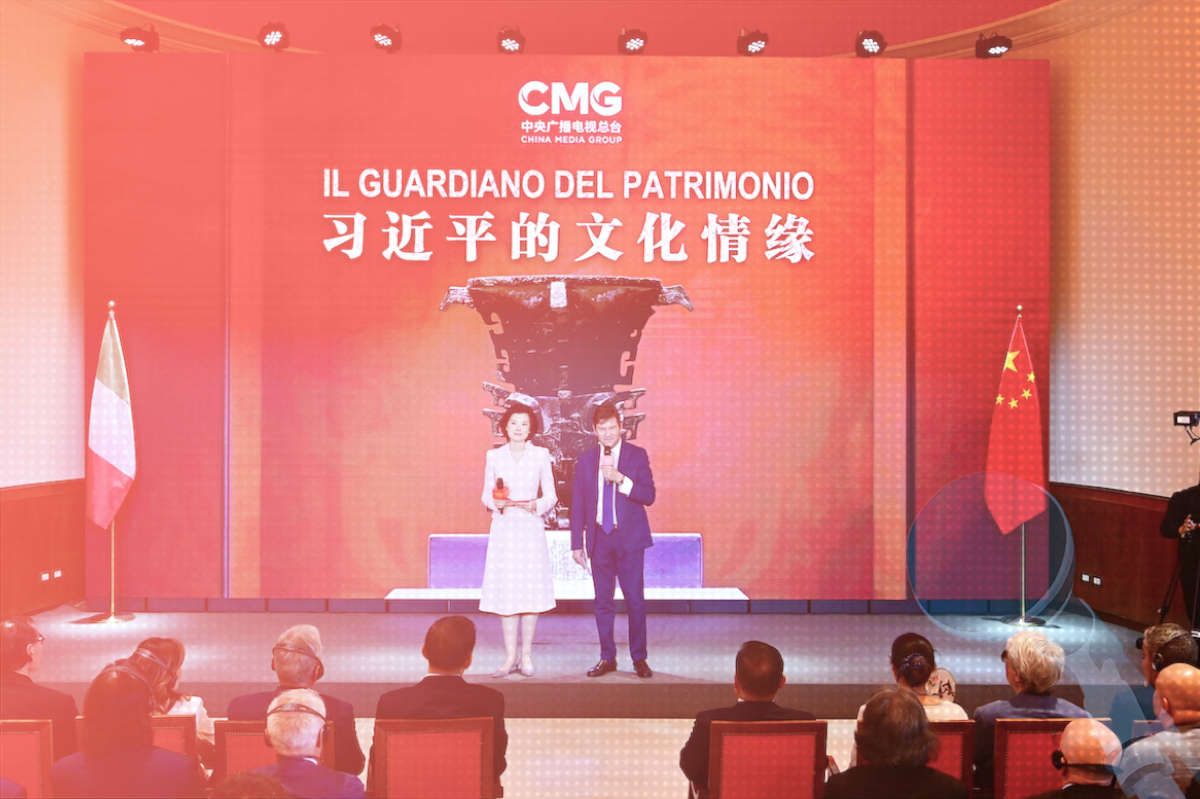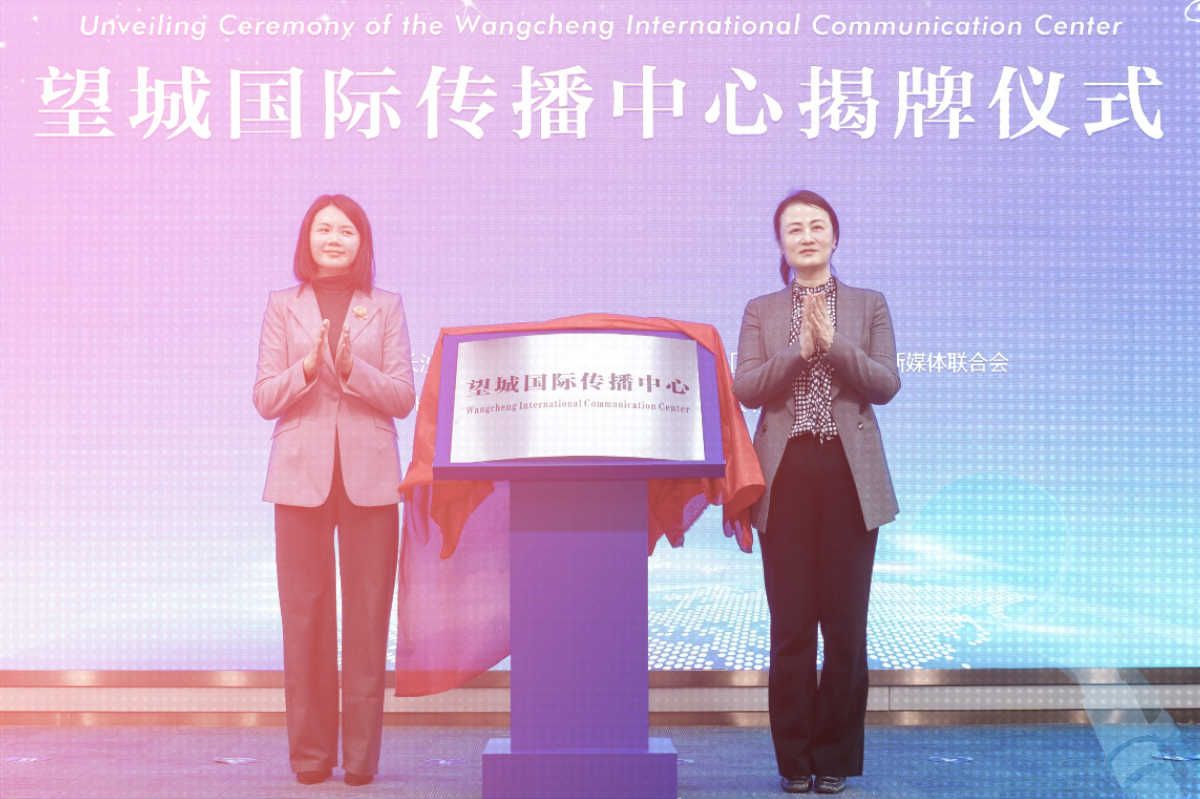Headlines and Hashtags
Will there be echoes in Hu Jintao's report of the 8th or 13th congresses?
When Chinese Premier Wen Jiabao wrote in the official People’s Daily earlier this year that China “is now and has long been in the early stages of socialism,” the phrase hearkened back to the political reform era of the 1980s. For many Chinese, there were clear echoes of Zhao Ziyang’s report to the 13th National Congress in 1987.
That congress, along with the 8th congress in 1956, is seen as a landmark for political reform in China. And as we have lately heard echoes too of the 8th congress in a livelier discussion of “inner-party democracy” (党内民主), it’s fair to ask whether the upcoming 17th National Congress will mark any return to the spirit of the 8th or 13th congresses.
[The 8th National Congress is announced in the official People’s Daily in 1956.]
The 8th National Congress, held in Beijing from September 15 to 27, 1956, was a rare bright spot in China’s political history. Held amidst the democratic movements sweeping Communist countries in the West in the wake of the 20th National Congress of the Soviet Union (held February 1956, the first since Joseph Stalin’s death in 1953), the 8th congress had two distinguishing characteristics:
1. Opposition to personality cults (个人崇拜) – “Mao Zedong Thought” was not written into the Party Constitution at the time, the 7th congress having designated Mao Zedong Thought simply as a “guiding principle.” This corresponded to Nikita Khruschev‘s critique of Stalin’s cult of personality and overconcentration of power.
2. An emphasis on “inner-party democracy” (党内民主)
Despite the crackdown on democracy demonstrators in 1989 and the ousting of Premier Zhao Ziyang, the 13th National Congress of 1987 remains an important signpost for Chinese reform. Even after Zhao’s downfall, Deng Xiaoping is known to have said of his political report to the 13th congress: “Not a word can be changed” (一个字都不能动).
[The 13th National Congress is announced in the official People’s Daily in 1987.]
As we look for parallels between the 17th congress and the 8th congress there are two questions to bear in mind. First, will President Hu Jintao promote “inner-party democracy”? Second, will Hu emphasize the need to check the power of individuals within the party and prevent personality cults?
I’ll explore “inner-party democracy” in greater detail in a later article. But as for the second point, the more specific question is whether Hu Jintao will push, as Jiang Zemin did, for the inclusion of his own core concepts in the Party Constitution. In other words, will party leaders write “harmonious society” and “scientific view of development” into the Party Constitution as a tribute to Hu Jintao’s political prowess?
As we look for parallels between the upcoming congress and the 13th congress we need to focus on two key phrases. First, will Hu Jintao resurrect the idea of “socialism in its early stages”? This phrase was first used by Zhao Ziyang in the 1980s to counter leftist fears that reforms were progressing too quickly. But the strength of the left has steadily waned since the 1990s. Wen Jiabao’s article in People’s Daily earlier this year already signals that “early stages” will likely appear in Hu Jintao’s report.
Secondly, will Hu Jintao’s report emphasize “one core and two focal points” (一个中心,两个基本点), another legacy of the 13th National Congress? Judging from Hu’s inclusion of the phrase in his June 25 speech, the answer is yes.
Of course, these terms are now in an entirely new context.
During the 13th congress, reforms faced powerful opposition and the notion of the Maoist class struggle was still very much alive. “One core and two focal points” was key to placating the left. With the strength of the left in clear decline, Hu Jintao’s continued emphasis of the phrase would now be a strategic attempt to temper calls for reform from the right. It would mean preserving the “Four Basic Principles” and thereby holding back the perceived threat to party rule posed by “bourgeois liberalism.”
The same is true of “socialism with Chinese characteristics,” a phrase used in a prominent section head of the 13th congress report to placate the left and shore up support for market reforms. Use of the term in 2007 would serve instead to balance those forces on the right that have been talking more loudly about “democratic socialism” (民主社会主义).
But the most critical phrase of all in determining whether the 17th congress makes a return to the 13th is “separation of the party and the government” (党政分开). Jiang Zemin omitted the phrase from all three of his political reports. The term ultimately points to the course of change in China — will political reform, in other words, be about the party’s consolidation of power, or about greater separation of powers?
I’ll leave a more detailed discusion of “separation of the party and the government” for another article.
(Qian Gang, September 28, 2007)
[Translated by David Bandurski]
Previous 17th Congress article: “Can Hu Jintao edge ahead of Jiang Zemin on the question of political reform?“





















